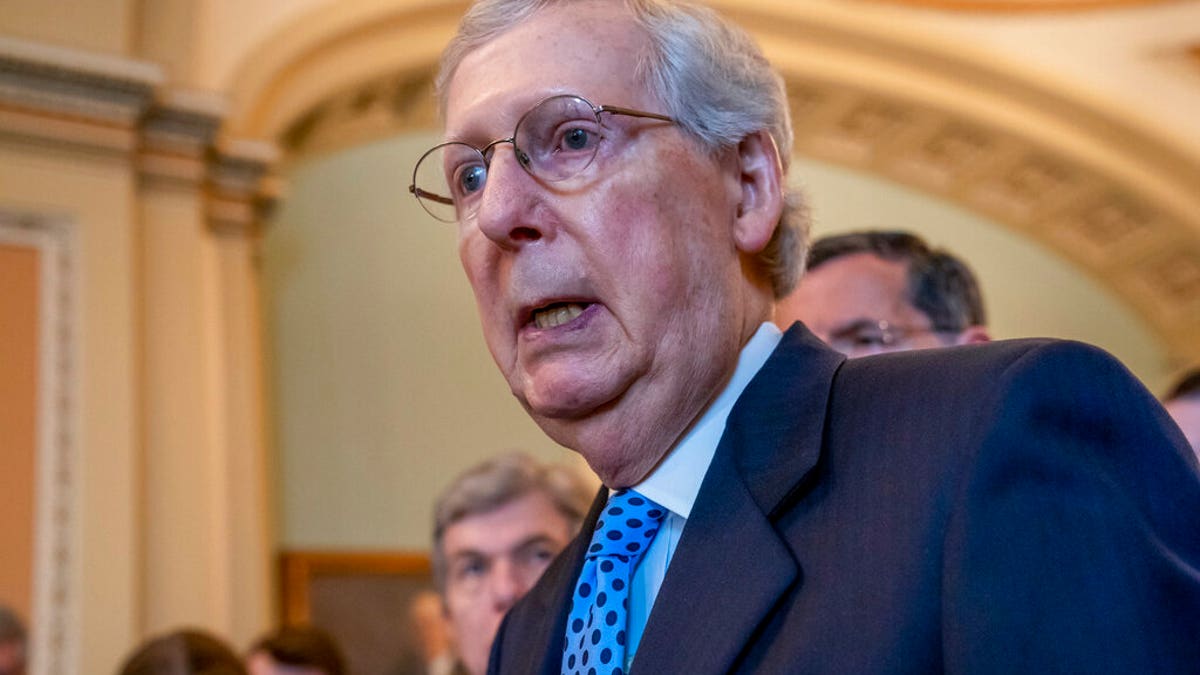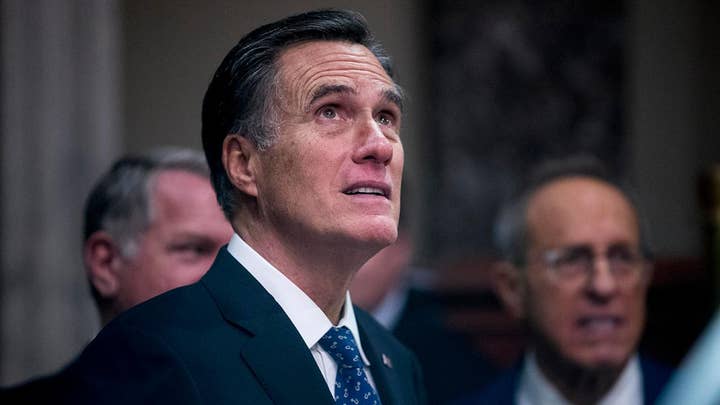Republican lawmakers, President Trump complain about secretive process of House Democrats' impeachment inquiry
Top U.S. envoy to Ukraine testifies behind closed doors; reaction and analysis from the 'Special Report' All-Stars.
President Trump is taking an even more aggressive stance toward Republican critics -- even by his bare-knuckle standards -- in an apparent bid to keep any wavering lawmakers in line after a rocky couple weeks for the administration in the impeachment probe.
On one hand, he's cheered House Republican allies, who made a high-profile stand for the president on Wednesday by storming a closed-door interview in an attempt to hit Democrats on transparency.
"Thank you to House Republicans for being tough, smart, and understanding in detail the greatest Witch Hunt in American History. It has been going on since long before I even got Elected (the Insurance Policy!). A total Scam!" Trump tweeted Thursday.
But Trump has also been unsparing in his attitude toward Senate Republicans who have chided his dealings with Ukraine that are at the heart of the impeachment probe -- especially Sen. Mitt Romney, R-Utah.
“The Never Trumper Republicans, though on respirators with not many left, are in certain ways worse and more dangerous for our Country than the Do Nothing Democrats,” Trump tweeted Wednesday afternoon. “Watch out for them, they are human scum!”
At an energy event in Pittsburgh on Wednesday and at a Cabinet meeting on Monday, Trump drew a contrast between the parties by saying Democrats "stick together" while he has to deal with detractors like Romney.
“I think [Democrats] are lousy politicians,” he said during the Monday meeting. “But two things that they have, they are vicious and they stick together. They don’t have Mitt Romney in their midst.”
The president and Romney have butted heads for years, long before the 2012 GOP presidential nominee was elected to the Senate last year. But recently, Romney has criticized Trump for his move to withdraw troops from Syria and his strategy with Turkey, as well as for his highly controversial phone call with Ukrainian President Volodymyr Zelensky in which he sought an investigation related to the Bidens.
Romney said Trump’s call with Zelensky was “deeply troubling,” and that his request to investigate former Vice President Joe Biden and his son was “brazen and unprecedented.” Romney also suggested it was simply “politically motivated.”
Romney is not the only Republican senator to condemn the president. Sens. Lisa Murkowski, R-Alaska, and Ben Sasse, R-Neb., have called out the president’s behavior as well.
Sasse said there was “terrible stuff” in the transcript of the president’s phone call.
Murkowski, last week, told reporters that she was specifically concerned about allegations that Trump withheld military aid to Ukraine.
“You don’t hold up foreign aid that we had previously appropriated for a political initiative,” Murkowski said. “Period.”
The heart of the debate surrounding the Trump-Zelensky phone call is whether Trump linked the U.S. military aid to his request to investigate Hunter Biden’s role on the Ukrainian natural gas firm Burisma Holdings and the elder Biden's involvement in ousting a prosecutor who had been looking at it. The White House and House GOP lawmakers have repeatedly insisted there was no quid pro quo, though top diplomat Bill Taylor challenged such claims in testimony this week.
Meanwhile, the impeachment push is posing a test for Senate Majority Leader Mitch McConnell. The shrewd political tactician raised eyebrows when he recently contradicted the president’s account of a purported conversation the two had earlier this month. Trump has said that McConnell, R-Ky., approved of the content of his phone call with Zelensky.
But this week, McConnell said he did not recall having the conversation with the president.
“We have not had any conversations on this subject,” he said Tuesday.
McConnell, though, is apparently telegraphing that Republicans’ approach to dealing with the impeachment inquiry should be to criticize the process Democrats are using.

Senate Majority Leader Mitch McConnell, R-Ky., says each member can 'speak for themselves' when it comes to House impeachment inquiry into President Trump. (AP Photo/J. Scott Applewhite)
“The due process argument is working,” a senior Senate GOP aide told Fox News Thursday. “It’s something everyone outside of Washington understands and is a good offensive posture for every congressional Republican to be in as Democrats continue to operate behind closed doors.”
But McConnell addressed head-on this week the claim that he is telling Republicans to defend the president.
“Each of my members can speak for themselves,” McConnell said. “The process in the House to which the president has been subjected is totally unprecedented and totally unfair.”
McConnell added: “As far as how our members feel about various aspects of this, they can speak for themselves.”
Republican support in the Senate is critical in order to keep Trump in office, should he be formally impeached.
All that is needed to impeach him in the House is a simple majority vote by those lawmakers present and voting. But at that point, removal from the Oval Office is hardly a certainty. The Senate would have to hold a “trial”—a proceeding that McConnell has indicated he has “no choice” but to hold.
MCCONNELL SAYS HE'D HAVE 'NO CHOICE' BUT TO TAKE UP IMPEACHMENT ARTICLES IF HOUSE APPROVES THEM
It takes a two-thirds Senate vote to convict a president and actually remove him.
For now, Trump's GOP Senate firewall remains in place. But according to a Daily Caller report, only a handful of senators have explicitly ruled out voting to remove Trump from office in an impeachment trial.
The only senators to outright say they were against voting to remove Trump were Sens. Cindy Hyde-Smith and Roger Wicker of Mississippi, Thom Tillis of North Carolina, Jim Inhofe of Oklahoma, Rob Portman of Ohio, Mike Rounds of South Dakota, and Jerry Moran of Kansas.
Others expressed they were not necessarily in favor of the impeachment inquiry but did not completely rule it out.














































